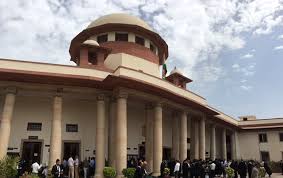Seven accused were convicted, including the present appellant-accused no.6, for the offences punishable under Section 396 read with Section 149, Section 395 read with Section 149, Section 307 read with Section 149, Section 435 read with Section 149 and Section 201 read with Section 149 of the Indian Penal Code, 1860 (Para 1)
Considering the nature of the testimony of PW2, it cannot be said that the evidence of PW2 is wholly reliable. The identification of the appellant for the first time in the Court after a lapse of about two years becomes doubtful for more than one reason. Firstly, the appellant was not known to PW2. Secondly, the appellant was part of a large aggressive mob of 50 to 100 people which surrounded the autorickshaw. Thirdly, there was no identification parade held. Fourthly, there was no time available to PW2 to note the distinctive features of the appellant. Hence, it is very unsafe to record a conclusion based only on the testimony of the solitary witness that the guilt of the appellant was proved beyond a reasonable doubt. (Para 8)
Now, coming to the role of accused nos.2,3 and 4, we must note here that the only role ascribed to them was that they were a part of the mob. No overt act was ascribed to them. The Trial Court believed the testimony of PW25 (Arifkhan) and PW26 (Sachinbhai Patel). Both PW25 and PW26 identified accused no.2. However, a test identification parade was not conducted. (Para 9)
As far as accused no.3 is concerned, he was identified by PW26 as a member of the mob. After having perused the testimony of PW25, we find that he has not specifically named accused no.3. Accused no.4 was not identified by PW26, but the finding of the Trial Court is that he was identified by PW25. (Para 10)
This Court was of the view that evidence of PW25 and PW26 does not inspire confidence. This Court did not partially reject the testimony of PW25 and PW26 but rejected their testimony in its entirety. (Para 12)
Accused nos. 1,5 and 13 were convicted only on the basis of the testimony of PW25 and PW26. They were acquitted by holding that the testimony of both witnesses was unreliable and deserved to be discarded. (Para 17)
SUPREME COURT OF INDIA
2023 STPL(Web) 265 SC
[2023 INSC 829]
Javed Shaukat Ali Qureshi Vs. State Of Gujarat
Criminal Appeal No. 1012 of 2022-Decided on 13-9-2023
https://stpllaw.in/wp-content/uploads/2023/09/2023-STPLWeb-265-SC.pdf







